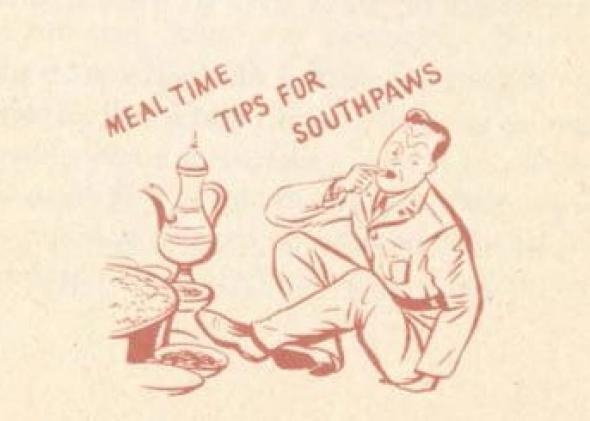The War Department's WWII Advice Booklet for Soldiers Headed to Syria

The Vault is Slate's history blog. Like us on Facebook, follow us on Twitter @slatevault, and find us on Tumblr. Find out more about what this space is all about here.
In 1942 the American war machine was in high gear, and soldiers were shipping out across the globe—often to places they knew nothing about. This booklet (one of many War Department guides covering countries from England to New Guinea) offered servicemen a crash course in the Levant’s language, geography, and culture.
Syria, then a French colonial possession that also included modern-day Lebanon, had been quiet since mid-1941, when the Allies liberated it from Germany and its French collaborators. The American mission would be defensive—part of a chain stretching from regional headquarters in Cairo to Iran, where Allied troops guarded the oil fields and supplied the Russians on the eastern front.
A historically-minded 1940 LIFE feature declared Syria a strategic crossroads, “watered by men’s blood for far longer than Flanders.” Many Americans, however, probably got their ideas of the Middle East from movies like The Road to Morocco, a 1942 Bob Hope farce full of harems, belly-dancers, and cruel sheikhs—“probably one of the most stereotypical films ever to come out of Hollywood,” as media critic Jack Shaheen puts it.
Sometimes the War Department guidebook displayed a similar Orientalist flair, reporting on Syrian knife-wielding skills and waxing romantic about the "desert folk that give flavor to the land." Mostly, though, it stuck to practicalities—don’t eat with your left hand, don’t stare at the women, try to speak some Arabic.
German agents might try to sow unrest, the booklet warned, but their prospects weren’t good. As the historian Fawaz Gerges notes, most Arabs at the time viewed America positively due to its support for Arab independence after World War I.
For all its age, the booklet’s prescription for mission success sounds thoroughly modern: “A big part of your job is to make friends for your cause—because this is a war of ideas, just as much as of tanks, planes and guns."
